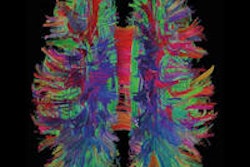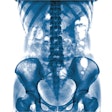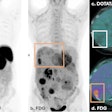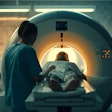MR images show that exercise prompts an increase in hippocampal brain volume in patients with schizophrenia, as well as in healthy people, according to the February issue of Archives of General Psychiatry.
The findings suggest that the brain retains some plasticity, or an ability to adapt, even in people with psychotic disorders and, thus, short-term memory could be improved (Arch Gen Psychiatry, Vol. 67:2, pp. 133-143).
Schizophrenia is known to reduce volume in the hippocampus, which helps regulate emotion and memory. "In contrast to other illnesses that may display psychotic features, such as bipolar disorder, schizophrenia is often characterized by incomplete recovery of psychotic symptoms and persistent disability," the authors wrote.
A research team assessed changes in hippocampal volume from an exercise program in both male patients with schizophrenia and men with similar demographic and physical characteristics but who did not have the condition. The lead author on the study was Dr. Frank-Gerald Pajonk of Saarland University Hospital in Hamburg and Dr. K. Fontheim's Hospital for Mental Health in Liebenburg, Germany.
Eight participants with schizophrenia and eight controls were randomly asked to participate in supervised cycling three times per week for 30 minutes. As a control group, an additional eight patients with schizophrenia played tabletop football instead of exercising for the same period of time.
All participants underwent fitness testing, MR imaging of the hippocampus, neuropsychological testing, and other clinical measures before and after participating in the 12-week program.
Following exercise training, hippocampal volume increased 12% in patients with schizophrenia and 16% in healthy controls.
The researchers concluded that the changes in volume were similar to changes found in other subcortical structures when patients were switched from typical to atypical antipsychotic drug therapy. Conversely, patients with schizophrenia who played tabletop football, instead of exercising, experienced a 1% decrease in hippocampal volume.
Aerobic fitness also increased among all the subjects who exercised, and improvement in test scores for short-term memory was correlated with increases in hippocampal volume among patients and healthy controls.
"Further clinical studies are needed to determine if an incremental improvement in the disability related to schizophrenia could be obtained by incorporating exercise into treatment planning and lifestyle choice for individuals with the illness," the authors noted.
By Wayne Forrest
AuntMinnie.com staff writer
February 1, 2010
Related Reading
PET shows promise for migraines, schizophrenia, October 30, 2009
Neuroimaging provides clearer picture of brain dysfunction in schizophrenia, August 5, 2009
fMRI helps find schizophrenia symptoms, January 20, 2009
MRI reveals patterns of neurological abnormalities in schizophrenia, April 4, 2006
DTI scans track schizophrenia-like changes in brains of teen marijuana users, December 1, 2005
Copyright © 2010 AuntMinnie.com



















